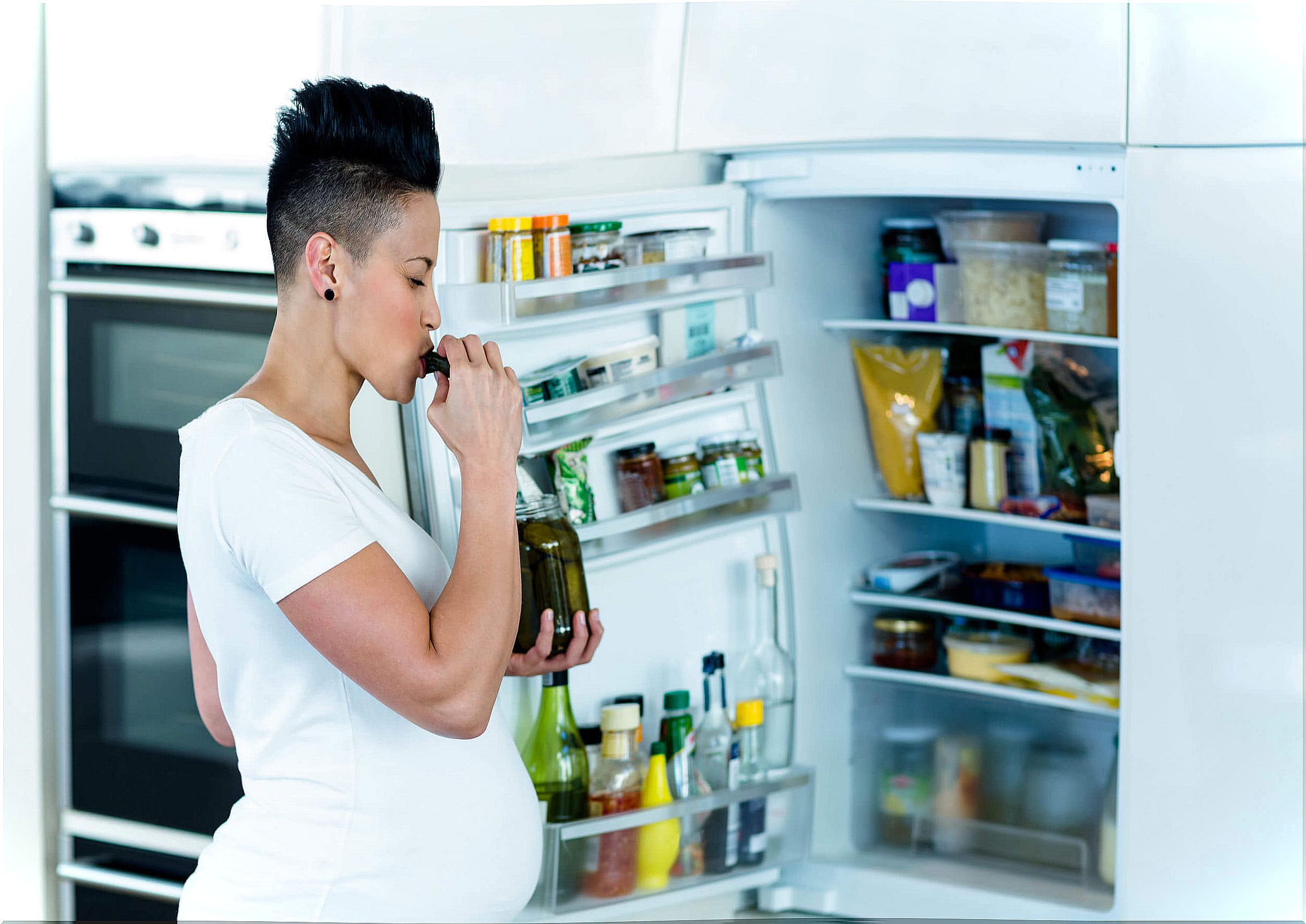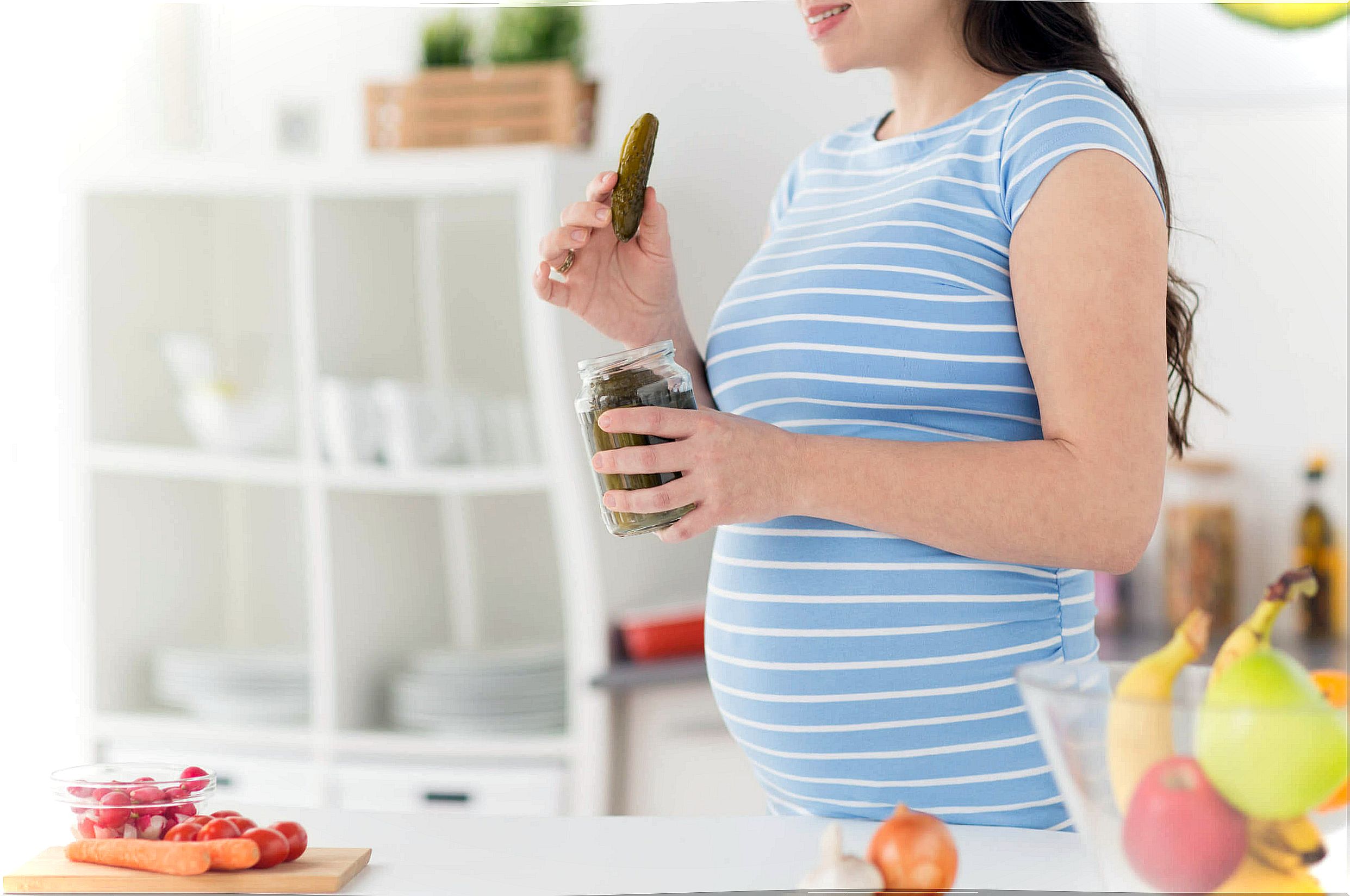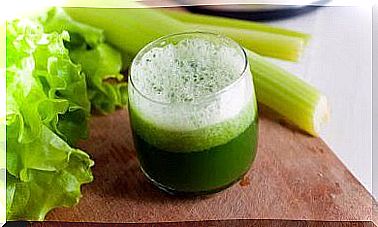The Most Frequent Cravings During Pregnancy

During pregnancy a very large hormonal alteration is experienced. This generates cravings or desires that normally translate into the need to eat a certain food. Almost all pregnant women have similarities in this regard.
It is important to manage cravings in pregnancy appropriately to avoid that the quality of the diet is altered and that the state of health is put at risk. It should be borne in mind that at this time it is necessary to guarantee a certain supply of nutrients, as well as restrict certain products.
Sweet is one of the most frequent cravings during pregnancy
Pregnant women often have a predilection for sweet foods. This may be due to the fact that, as the body increases nutritional requirements, it demands a greater amount of glucose to keep glucose levels stable in the blood.

However, satisfying this craving is not always adequate. According to research published in the journal Nutrients , excessive consumption of simple sugars could help the condition known as gestational diabetes to develop. This disease poses a risk to the health of the mother and the fetus when it is not optimally controlled.
In this sense, it is worth noting the importance of limiting the intake of ice cream, chocolate and cookies, these foods being highly demanded by pregnant women during the initial periods of pregnancy.
Some women are attracted to spicy during pregnancy
It is also quite common for women to crave spicy foods during pregnancy. This is because hormonal changes create a special taste for strong or punchy flavors.
However, foods that have capsaicin inside are not always recommended at this stage. Despite the fact that the substance itself has been shown to act as an anti-inflammatory and as an analgesic, it can be harmful for those women who suffer from frequent heartburn or reflux.
It is important to check tolerance to these types of products before introducing them into the diet. Pickles, jalapeños, hot peppers, and even highly seasoned food are usually preferred.
Cheese is another of the frequent cravings in pregnancy
Women tend to increase the desire for cheese during pregnancy. Its fat content is capable of generating a greater feeling of satiety. In addition, these lipids have the ability to modulate inflammatory processes. They even have essential nutrients inside to maintain good bone health.
Anyway, pregnant women have to be careful about the type of cheese they eat. Only those that have been made from pasteurized milk can be introduced into the diet. Otherwise, their microbiological risk increases. It must be taken into account that poisoning during this stage can put the life of the fetus at risk.
However, cured cheeses made with milk that has been properly sterilized can and should be part of a woman’s diet during pregnancy. Only one other limitation should be taken into account, and this is the case of those who have developed lactose intolerance. However, there are solutions to this problem, such as taking a pill with the enzyme lactase.

Cravings During Pregnancy: Frequent Cravings
As discussed, it is very common for women to experience cravings during pregnancy, derived from the hormonal changes that occur in this period. Some of these cravings even linger for months after you’ve given birth.
As a general rule, these cravings can be satisfied. However, it is necessary to limit the consumption of sweets to avoid the development of gestational diabetes. With cheeses you also have to be careful, since not all of them can be included in the diet of a pregnant woman.
Remember that if you want to know precisely the foods that can be part of the diet during this period, it is best to go to a specialist. In the same way, it will be necessary to calibrate the diet so as not to experience excessive weight gain, since this could be related to a worse state of health of the mother and the baby.










